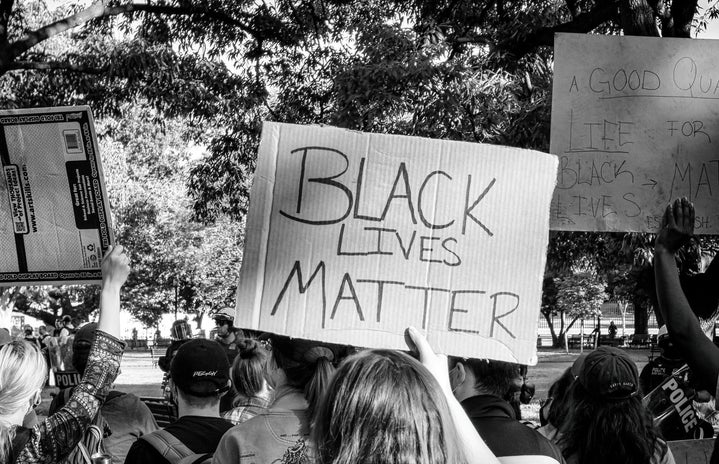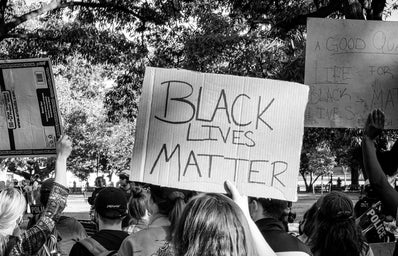Part 1: The transformative life of Malcolm X
A shocking new character emerged in the civil rights turmoil of the 1960s. While most civil rights leaders were pushing for nonviolence and integration, Malcolm X gravitated towards Black separatism. It wouldn’t be until the last year of his life that he would undergo a radical change of heart, paralleling the ever-changing dynamic between the whites and Blacks of America. Although this change of heart seemed unexpected, the circumstances of his life, including experiencing racism as a child, confinement in prison, and engaging in extremism, all served as stepping stones for him to discover the ultimate and true purpose of civil rights.
The early years of Malcolm Little
Born Malcolm Little in Omaha, Nebraska, Malcolm struggled to navigate his life amid the constricting and segregated atmosphere between American Blacks and whites. He and his family were repeated victims of scathing racism. His father’s avid support for Black Nationalist leader Marcus Garvey prompted threats from the Black Legion; his father died after being hit by a streetcar, quite possibly the victim of murder by whites. His mother, completely shattered, became chained to a mental institution. Malcolm and his siblings were separated, forced into different foster homes.
Black identity
In high school, Malcolm lost interest in school and dropped out. He found himself presented with two different paths. After moving to Boston to live with his sister, he observed, “She was the first really proud black woman I had ever seen in my life. She was plainly proud of her very dark skin. This was unheard of among Negroes in those days.” However, rather than focusing on the positive aspects of his Black identity, Malcolm was allured by the city life. Overpowered by the lust of crime, Malcolm was sentenced to prison for 10 years for a burglary crime committed in Harlem, New York in 1946. His resentment and hatred of whites was so overpowering that Malcolm decided to ignore his problems and set off on a path of losing himself. With no sight of any peace between Black and white citizens of America, he found himself with no sight of peace within himself.
Finding faith through the Nation of Islam
Just as Malcolm’s life was seemingly taking a downward arc, he would escape the abyss of loss. While in prison, Malcolm committed himself to reading books constantly, as if to make up for the education he missed out on. From his brother, Reginald Little, Malcolm discovered the Nation of Islam, a group that embraced Black nationalism and a moral code. In 1952, after a self-evaluation of his purpose in life, Malcolm found guidance and converted to Islam, following the Nation of Islam leader, Elijah Muhammad. He assumed the name Malcolm X, burying his slave name “Little” and adopting one that signified his lost tribal name.
Elijah Muhammad served as the guide for Malcolm X in his newfound religion. He gave Malcolm a new sense of coherence and confidence. It is from the Nation of Islam that Malcolm was finally reminded of his early experiences of Black pride and Black initiative. These are qualities his sister had exposed him to, but a radical change in faith was required for Malcolm to fully embrace these aspects of Black identity.
Malcolm X was given the role of primary spokesman for Elijah Muhammad; he found pleasure reeling in converts through his powerful speeches. Malcolm’s speeches were vitriolic, declaring the whites as devils and rejecting any form of Black integration, believing that integration would only lead to Blacks being forced to assimilate into white culture. Elijah Muhammad took a somewhat less rash approach and favored a general non-engagement policy.
Malcolm X and Elijah Muhammad
However, the power that Malcolm X had assumed through his intense speeches clashed with the ideals of the Nation of Islam. On November 22, 1963, following the assassination of President John F. Kennedy, Elijah Muhammad strictly stated that no Nation of Islam member should comment on the death. The country was grieving and it would be dangerous to bring attention to their organization. During an event that day, Malcolm X was prompted to share his thoughts on the assassination, to which he exclaimed that “Kennedy never foresaw the chickens would come home to roost so soon.” Later regretting his comment, Malcolm X tried to soften the blow of his words by explaining it was the atmosphere of tolerating violence against African Americans that contributed to the death of the president. Furious at the insubordination of Malcolm X, Elijah Muhammad suspended him from speaking for 90 days, twisting their strained relationship further.
Malcolm grew increasingly frustrated with being censored by Elijah Muhammad. However, that frustration turned into something else after discovering Elijah Muhammad had only been wearing a pious mask. Malcolm learned that behind it Muhammad had been unfaithful to his wife and had numerous extramarital affairs. Malcolm X felt utterly betrayed by the front this man had put on. For years he had viewed Elijah Muhammad as a mentor who had guided him onto the path of Allah and saved him from a path of self-destruction. He realized he had to separate from the Nation of Islam.
Finding faith through brotherhood
With so much confusion and loss in his life, Malcolm X had drifted through the years seeking change and clinging onto that one religious belief. He now could see no other option in how to proceed with the civil rights movement. He realized that Black nationalism was too narrowly and racially conceived. Malcolm wanted unity and to avoid sectarianism.
In 1964, Malcolm X made a spiritual pilgrimage to the holy site of Mecca, a place where Muslims perform Hajj. He was profoundly moved by this experience, as he saw people representing a multitude of different races standing side by side in prayer, all united by their belief in Allah. As he watched the prayer he realized he was “not conscious of color for the first time in my life.” The message from prominent Arab officials and Islamic scholars that religion did not make racial distinctions or follow the whites as devils’ ideology reverberated in his heart. Malcolm X reexamined his belief that “Truth is from Allah, only mistakes have been mine.” Malcolm X had searched for an outlet to improve conditions for Black citizens through a constricted view of anger and resentment. However, the virtues of Islam most perfectly created an atmosphere of civil rights that focused on human rights.
The legacy of Malcolm X
The influence of Malcolm X extended to shaping the Black Power Movement, which accepted his positions on pushing for Black involvement in politics, ultimately contributing to effective social change. The anger that Malcolm sought to channel into political action exploded in the 1965 Watts riot. This riot reinforced how Malcolm X was able to effectively move many people towards an intense urge for change.
Given his trauma as a child and incredible intellectual abilities, Malcolm was destined to undergo radical change and approach the civil rights movement from a completely different direction. Faith in God and adherence to Islam amplified the morality he desperately needed to be a revolutionary leader. After Malcolm X was assassinated, his legacy remained. However, the successes of Malcolm X cannot be measured from the number of civil rights passages passed, the masses of his followers, or even his effort to involve the UN in the race problem of America. Rather, historians are struck by his transformation from racially based hatred to recognition of the pride necessary in the struggle of equality for all of humanity.


